#Definitely not Shakespeare
Text
Shit my low-INT bard reads - 2
(and doesn't care who gives him a hard time about it)
Desgreangrid Frostcoat summons
Dalmeloth Blighter of Flesh
By Ketthel Anorthosite Kulthinthrin
Desi marked the circle as she'd learned
from her long-dead mother who had warned
"Never set your foot within its space
and never let the Thing behold your face."
She chanted thirteen hours in Abyssal,
spoke the words of power she had wrestled
from a fiend who wouldn't soon forget
But she would walk this path as it was set.
A putrid smoke and sickly light appeared
exactly as she'd hoped and also feared.
The form inside that maelstrom had such grace
she failed to pull her veil across her face.
The thing had claws and teeth and wings and fur
and words less like a growl, more like a purr:
"Who dares summon—" it began, then… sighed.
"You know," it said, "I really do not mind."
"Thou art bound by power!" Desi rasped,
"and try no tricks or I will have you lashed."
"That thought, fair lady, fills me with delight,"
it said, "and you can call me Dally Blight."
The sorceress knew not how to respond
and bought time chanting the Controller's Song.
Dally said, "your voice is sweet and fulsome.
I welcome the most vicious of compulsions."
Desi, who'd intended to command
the Thing to purge the Unclean from her land,
found these words escaping from her lips,
"Perhaps—I mean thy liege demands—a kiss."
The thing before her moaned—or was it laughter?
"With pleasure, precious, but what word comes after?"
"What do you mean, foul fiend?" her voice was thin.
It said, "I mean, kiss it? Kiss her? Kiss him?
Or, honestly, a dozen other options."
Was Desi's heart on fire? Or was it stopping?
She had labored more than forty years
she knew Command, knew how to conquer fear
But now she felt a new sensation rising
as she said to Dalmeloth, "Surprise me."
Several minutes into their embrace
she realized the Thing had seen her face.
Dally saw her shock and said, "My sweet,
that's the least of it. Look at our feet."
with dread she saw her right foot on the line
and, somehow, Dally's left foot was outside.
"Dearest," Dally said, "I must come clean.
I love you, though you're you and I'm a Thing.
Your chanting, singing strength was in my ears
for you mere hours; for me, thirteen years.
"At first I wished to torture you, devour you,
but then your voice brought me to better know you.
I begged Agramoleth The Hungry Dead
And it agreed that I could come, instead.
Volunteering for another's summons
turns out to have affected the procedure
in contrast to the fate of many demons,
I'm not compelled, but overjoyed to be here.
I thank the gods and devils I have found you.
after thirteen years hearing your passion
I want to be with you, to be around you
in any way you want or can imagine.
She stared at what she'd clearly not enslaved
and wondered how the fortunes could arrange
a thing she never knew she'd always craved:
a love for whom no passion would seem strange.
She said, "I will no longer call you Thing,
my love from somewhere I can't comprehend.
Kiss me again, then let's erase this ring
and I will love you just as I intend."
Then the two began to do some things
it's better not to write in mortal ink
and afterwards they breakfasted,
eventually in bed.
#DnD#Fantasy literature#Definitely not Shakespeare#Very long poems#Shameless schmaltz#Bard#Pretentious language#iambic pentameter#Wasted on a character backstory
0 notes
Text

Re-watching this absolute classic.
#I thought i was beatrice but im definitely benedick in this scene#much ado about nothing#shakespeare#david tennant#catherine tate#benedick x beatrice
680 notes
·
View notes
Text





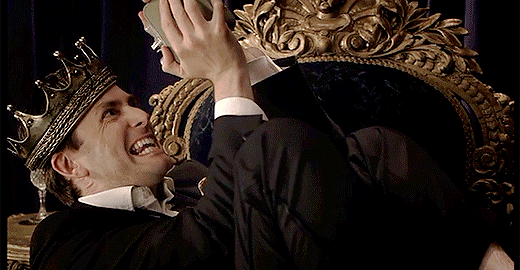
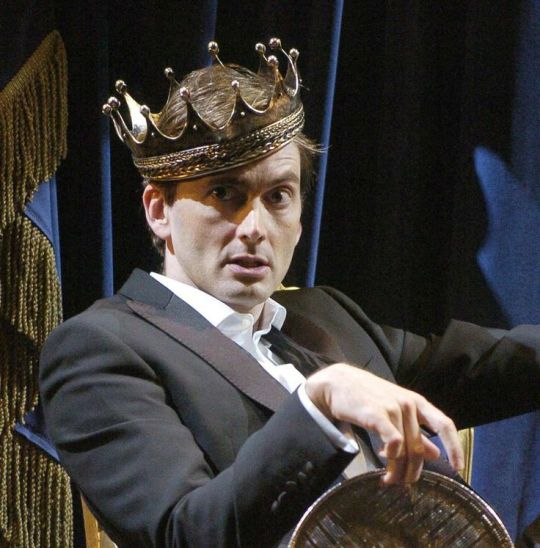
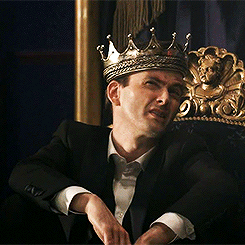

Something is slutty in the state of Denmark
#david tennant#david tennant in chairs#hamlet#hamlet 2009#legs for days#just like all the limbs#mortal chairs cannot contain him#I'm not saying this is his sexiest role#but I'm also not NOT saying it#definitely in the top 3#good lord he's beautiful#i mean seriously just look at him#soft scottish hipster gigolo#i feel very normal about him#not at all feral or rabid#the eyes the hair the nose the everything#and also#hands hands hands#stupid slutty hamlet#dt does shakespeare
160 notes
·
View notes
Photo
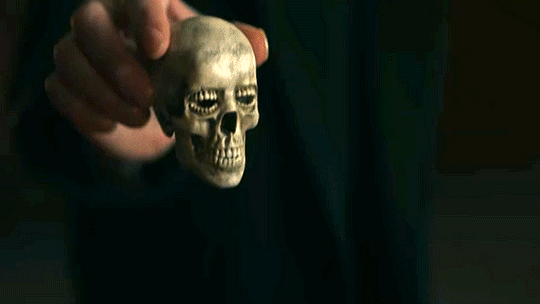

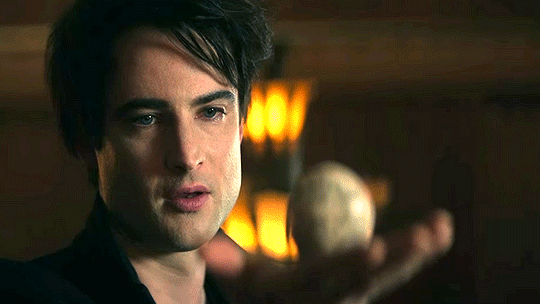
The Sandman | alas poor Corinthian, I knew him
#the sandman#sandman#tom sturridge#morpheus#dream of the endless#sue's things#sicvita:sandman#the corinthian#boyd holbrook#this gave me hamlet vibes#so i had to gif it!#definitely a fellow of infinite jest#and most excellent fancy#we need to see all the shakespeare in sandman#to sleep perchance to dream!#maybe Hamlet is also a Dream-commissioned play
2K notes
·
View notes
Text
"kill claudio" this, "kill claudio" that. kill leonato. he believed a guy who he'd known for like a week over his literal daughter, joined him in publicly accusing and humiliating her, told her he wished she had never been born, then had the fucking audacity to tell claudio how awful he was for 'killing' hero, when he not only let him do it but encouraged and joined in with him
#like yeah okay definitely kill claudio#but leonato is worse#claudio at least thought he had real evidence#leonato just believed claudio and don pedro immediately#and you can go with the interpretation that claudio is very young and naive#and feels a need to impress his new older friends#and thinks he's doing the right thing because that's what a Man would do#which makes him a little sympathetic at least#but there is no way to make leonato sympathetic#whatever interpretation you have he's an asshole#much ado about nothing#much ado#shakespeare#willy shakes
392 notes
·
View notes
Text
wild to me to see posts like "wow everything in the tempest is named after shakespeare...emet you melodramatic bitch you sure loved theater". because the prospero-emet thing gets played up so hard in the english script and you can carry it so far!
like prospero is an asshole magician who, after being deposed by his brother as duke of milan, settles himself and his daughter on a remote island, enslaves the local spirits using his magic, and bitterly plots to reclaim his past glories. he rules through violence and deceit, and only survives and is reconciled when his plots reach their fruition and his brother is taken to his remote island and plots ensue and everyone decides he was totally right all along and they were huge dicks to him and they're sooooo sorry and he gets to go back and be duke again wow! and it's okay because he's like "i was only doing mean magic to get my rightful spot back and now i'm giving it up because magic is evil. :)"
the tempest is what emet wants his life to be. prospero is not a villain in the text of the tempest. he is barely treated as antagonistic by the text and framing of the play itself. all his abuses, his neglect and control of his daughter, his enslavement of caliban and ariel (local spirits/monsters/people of the island), his deception and plots against his brother, his abuse of magical powers (not awesome, from the pov of the contemporary audience), all that ultimately gets swept aside in the rightness of his return to milan and the warm feeling of the world being set to rights. prospero can't undo the years he spent on the island but they are ultimately a blip in his life before he returns to the rightful state of affairs. his abuse and enslavement of caliban, easily the worst thing he does in the play, is totally set aside when caliban goes "wow now i see how truly benevolent my master is. i love him and see the ways of christian good and i'm so, so appreciative he chose not to kill or beat me even though he totally could have and would have been in the right. he's so just and intelligent." everyone loves and forgives him and they all agree both his management of the island and his ultimate return are so good and so wise and so right.
emet comparing himself to the tempest (or being compared to it, depending on how you want to read the diegetic status of the place names) is absolute wishcasting. it is an attempt to manifest the happy ending he will never, ever get because his sins cannot and would not be forgiven in the way he wants. he wants to imagine himself as the righteous returned duke whose crimes, including the enslavement, abuse, and exploitation of those he saw as his rightful inferiors, were totally worth it, i promise. and if emet is prospero, the warrior of light is his caliban.
#emet-selch#ffxiv#hades#shadowbringers spoilers#like by the time you get to the end you've already spoken to the amaurotine shades and hythlodaeus in particular#it's incredibly clear that even if emet's plans come to fruition he is *utterly alien to the world he is trying to restore*#and like prospero is restored in the end. but his wife is still dead. miranda grew up isolated and alone.#also to take a somewhat more jaundiced view#the things he did to caliban and to ariel can never be undone. that stain is with him forever.#and i mean even IF you can just yank all those souls right out of zodiark and fix the whole thing#there's still everyone who died before the first sacrifice and after the second. also THE VOID IS THE VOID.#'yeah uh we'll just fix that. when zodiark is up and running properly.'#sure dude i totally believe your expertise on the problem you caused by not knowing enough. you definitely know enough now.#anyways he can't waver for even a moment bc it means acknowledging he has betrayed everything he ever claimed to believe in due to his grie#he is in blood stepped so far etc. if i can be allowed to mix my shakespeares#emet-selch more like emet-sunk cost fallacy
107 notes
·
View notes
Text
The entire experience of watching a Shakespearean comedy is hearing the female leads say most beautifully romantic things to each other for an hour or so until one or both of them falls unconvincingly for a man who is either duller than a sweet cream milkshake or definitely gay.
#shakespeare#much ado about nothing#as you like it#twelfth night#shakespeare was definitely a trans lesbian
899 notes
·
View notes
Text
Tell Your Dad You Love Him
A retelling of "Meat Loves Salt"/"Cap O'Rushes" for the @inklings-challenge Four Loves event
An old king had three daughters. When his health began to fail, he summoned them, and they came.
Gordonia and Rowan were already waiting in the hallway when Coriander arrived. They were leaned up against the wall opposite the king’s office with an air of affected casualness. “I wonder what the old war horse wants today?” Rowan was saying. “More about next year’s political appointments, I shouldn’t wonder.”
“The older he gets, the more he micromanages,” Gordonia groused fondly. “A thousand dollars says this meeting could’ve been an email.”
They filed in single-file like they’d so often done as children: Gordonia first, then Rowan, and Coriander last of all. The king had placed three chairs in front of his desk all in a row. His daughters murmured their greetings, and one by one they sat down.
“I have divided everything I have in three,” the king said. “I am old now, and it’s time. Today, I will pass my kingdom on to you, my daughters.”
A short gasp came from Gordonia. None of them could have imagined that their father would give up running his kingdom while he still lived.
The king went on. “I know you will deal wisely with that which I leave in your care. But before we begin, I have one request.”
“Yes father?” said Rowan.
“Tell me how much you love me.”
An awkward silence fell. Although there was no shortage of love between the king and his daughters, theirs was not a family which spoke of such things. They were rich and blue-blooded: a soldier and the daughters of a soldier, a king and his three court-reared princesses. The royal family had always shown their affection through double meanings and hot cups of coffee.
Gordonia recovered herself first. She leaned forward over the desk and clasped her father’s hands in her own. “Father,” she said, “I love you more than I can say.” A pause. “I don’t think there’s ever been a family so happy in love as we have been. You’re a good dad.”
The old king smiled and patted her hand. “Thank you, Gordonia. We have been very happy, haven’t we? Here is your inheritance. Cherish it, as I cherish you.”
Rowan spoke next; the words came tumbling out. “Father! There’s not a thing in my life which you didn’t give me, and all the joy in the world beside. Come now, Gordonia, there’s no need to understate the matter. I love you more than—why, more than life itself!”
The king laughed, and rose to embrace his second daughter. “How you delight me, Rowan. All of this will be yours.”
Only Coriander remained. As her sisters had spoken, she’d wrung her hands in her lap, unsure of what to say. Did her father really mean for flattery to be the price of her inheritance? That just wasn’t like him. For all that he was a politician, he’d been a soldier first. He liked it when people told the truth.
When the king’s eyes came to rest on her, Coriander raised her own to meet them. “Do you really want to hear what you already know?”
“I do.”
She searched for a metaphor that could carry the weight of her love without unnecessary adornment. At last she found one, and nodded, satisfied. “Dad, you’re like—like salt in my food.”
“Like salt?”
“Well—yes.”
The king’s broad shoulders seemed to droop. For a moment, Coriander almost took back her words. Her father was the strongest man in the world, even now, at eighty. She’d watched him argue with foreign rulers and wage wars all her life. Nothing could hurt him. Could he really be upset?
But no. Coriander held her father’s gaze. She had spoken true. What harm could be in that?
“I don’t know why you’re even here, Cor,” her father said.
Now, Coriander shifted slightly in her seat, unnerved. “What? Father—”
“It would be best if—you should go,” said the old king.
“Father, you can’t really mean–”
“Leave us, Coriander.”
So she left the king’s court that very hour.
.
It had been a long time since she’d gone anywhere without a chauffeur to drive her, but Coriander’s thoughts were flying apart too fast for her to be afraid. She didn’t know where she would go, but she would make do, and maybe someday her father would puzzle out her metaphor and call her home to him. Coriander had to hope for that, at least. The loss of her inheritance didn’t feel real yet, but her father—how could he not know that she loved him? She’d said it every day.
She’d played in the hall outside that same office as a child. She’d told him her secrets and her fears and sent him pictures on random Tuesdays when they were in different cities just because. She had watched him triumph in conference rooms and on the battlefield and she’d wanted so badly to be like him.
If her father doubted her love, then maybe he’d never noticed any of it. Maybe the love had been an unnoticed phantasm, a shadow, a song sung to a deaf man. Maybe all that love had been nothing at all.
A storm was on the horizon, and it reached her just as she made it onto the highway. Lightning flashed and thunder rolled. Rain poured down and flooded the road. Before long, Coriander was hydroplaning. Frantically, she tried to remember what you were supposed to do when that happened. Pump the brakes? She tried. No use. Wasn’t there something different you did if the car had antilock brakes? Or was that for snow? What else, what else–
With a sickening crunch, her car hit the guardrail. No matter. Coriander’s thoughts were all frenzied and distant. She climbed out of the car and just started walking.
Coriander wandered beneath an angry sky on the great white plains of her father’s kingdom. The rain beat down hard, and within seconds she was soaked to the skin. The storm buffeted her long hair around her head. It tangled together into long, matted cords that hung limp down her back. Mud soiled her fine dress and splattered onto her face and hands. There was water in her lungs and it hurt to breathe. Oh, let me die here, Coriander thought. There’s nothing left for me, nothing at all. She kept walking.
.
When she opened her eyes, Coriander found herself in a dank gray loft. She was lying on a strange feather mattress.
She remained there a while, looking up at the rafters and wondering where she could be. She thought and felt, as it seemed, through a heavy and impenetrable mist; she was aware only of hunger and weakness and a dreadful chill (though she was all wrapped in blankets). She knew that a long time must have passed since she was fully aware, though she had a confused memory of wandering beside the highway in a thunderstorm, slowly going mad because—because— oh, there’d been something terrible in her dreams. Her father, shoulders drooping at his desk, and her sisters happily come into their inheritance, and she cast into exile—
She shuddered and sat up dizzily. “Oh, mercy,” she murmured. She hadn’t been dreaming.
She stumbled out of the loft down a narrow flight of stairs and came into a strange little room with a single window and a few shabby chairs. Still clinging to the rail, she heard a ruckus from nearby and then footsteps. A plump woman came running to her from the kitchen, wiping her hands on her apron and softly clucking at the state of her guest’s matted, tangled hair.
“Dear, dear,” said the woman. “Here’s my hand, if you’re still unsteady. That’s good, good. Don’t be afraid, child. I’m Katherine, and my husband is Folke. He found you collapsed by the goose-pond night before last. I’m she who dressed you—your fine gown was ruined, I’m afraid. Would you like some breakfast? There’s coffee on the counter, and we’ll have porridge in a minute if you’re patient.”
“Thank you,” Coriander rasped.
“Will you tell me your name, my dear?”
“I have no name. There’s nothing to tell.”
Katherine clicked her tongue. “That’s alright, no need to worry. Folke and I’ve been calling you Rush on account of your poor hair. I don’t know if you’ve seen yourself, but it looks a lot like river rushes. No, don’t get up. Here’s your breakfast, dear.”
There was indeed porridge, as Katherine had promised, served with cream and berries from the garden. Coriander ate hungrily and tasted very little. Then, when she was finished, the goodwife ushered her over to a sofa by the window and put a pillow beneath her head. Coriander thanked her, and promptly fell asleep.
.
She woke again around noon, with the pounding in her head much subsided. She woke feeling herself again, to visions of her father inches away and the sound of his voice cracking across her name.
Katherine was outside in the garden; Coriander could see her through the clouded window above her. She rose and, upon finding herself still in a borrowed nightgown, wrapped herself in a blanket to venture outside.
“Feeling better?” Katherine was kneeling in a patch of lavender, but she half rose when she heard the cottage door open.
“Much. Thank you, ma’am.
“No thanks necessary. Folke and I are ministers, of a kind. We keep this cottage for lost and wandering souls. You’re free to remain here with us for as long as you need.”
“Oh,” was all Coriander could think to say.
“You’ve been through a tempest, haven’t you? Are you well enough to tell me where you came from?”
Coriander shifted uncomfortably. “I’m from nowhere,” she said. “I have nothing.”
“You don’t owe me your story, child. I should like to hear it, but it will keep till you’re ready. Now, why don’t you put on some proper clothes and come help me with this weeding.”
.
Coriander remained at the cottage with Katherine and her husband Folke for a week, then a fortnight. She slept in the loft and rose with the sun to help Folke herd the geese to the pond. After, Coriander would return and see what needed doing around the cottage. She liked helping Katherine in the garden.
The grass turned gold and the geese’s thick winter down began to come in. Coriander’s river-rush hair proved itself unsalvageable. She spent hours trying to untangle it, first with a hairbrush, then with a fine-tooth comb and a bottle of conditioner, and eventually even with honey and olive oil (a home remedy that Folke said his mother used to use). So, at last, Coriander surrendered to the inevitable and gave Katherine permission to cut it off. One night, by the yellow light of the bare bulb that hung over the kitchen table, Katherine draped a towel over Coriander’s shoulders and tufts of gold went falling to the floor all round her.
“I’m here because I failed at love,” she managed to tell the couple at last, when her sorrows began to feel more distant. “I loved my father, and he knew it not.”
Folke and Katherine still called her Rush. She didn’t correct them. Coriander was the name her parents gave her. It was the name her father had called her when she was six and racing down the stairs to meet him when he came home from Europe, and at ten when she showed him the new song she’d learned to play on the harp. She’d been Cor when she brought her first boyfriend home and Cori the first time she shadowed him at court. Coriander, Coriander, when she came home from college the first time and he’d hugged her with bruising strength. Her strong, powerful father.
As she seasoned a pot of soup for supper, she wondered if he understood yet what she’d meant when she called him salt in her food.
.
Coriander had been living with Katherine and Folke for two years, and it was a morning just like any other. She was in the kitchen brewing a pot of coffee when Folke tossed the newspaper on the table and started rummaging in the fridge for his orange juice. “Looks like the old king’s sick again,” he commented casually. Coriander froze.
She raced to the table and seized hold of the paper. There, above the fold, big black letters said, KING ADMITTED TO HOSPITAL FOR EMERGENCY TREATMENT. There was a picture of her father, looking older than she’d ever seen him. Her knees went wobbly and then suddenly the room was sideways.
Strong arms caught her and hauled her upright. “What’s wrong, Rush?”
“What if he dies,” she choked out. “What if he dies and I never got to tell him?”
She looked up into Folke’s puzzled face, and then the whole sorry story came tumbling out.
When she was through, Katherine (who had come downstairs sometime between salt and the storm) took hold of her hand and kissed it. “Bless you, dear,” she said. “I never would have guessed. Maybe it’s best that you’ve both had some time to think things over.”
Katherine shook her head. “But don’t you think…?”
“Yes?”
“Well, don’t you think he should have known that I loved him? I shouldn’t have needed to say it. He’s my father. He’s the king.”
Katherine replied briskly, as though the answer should have been obvious. “He’s only human, child, for all that he might wear a crown; he’s not omniscient. Why didn’t you tell your father what he wanted to hear?”
“I didn’t want to flatter him,” said Coriander. “That was all. I wanted to be right in what I said.”
The goodwife clucked softly. “Oh dear. Don’t you know that sometimes, it’s more important to be kind than to be right?”
.
In her leave-taking, Coriander tried to tell Katherine and Folke how grateful she was to them, but they wouldn’t let her. They bought her a bus ticket and sent her on her way towards King’s City with plenty of provisions. Two days later, Coriander stood on the back steps of one of the palace outbuildings with her little carpetbag clutched in her hands.
Stuffing down the fear of being recognized, Coriander squared her shoulders and hoped they looked as strong as her father’s. She rapped on the door, and presently a maid came and opened it. The maid glanced Coriander up and down, but after a moment it was clear that her disguise held. With all her long hair shorn off, she must have looked like any other girl come in off the street.
“I’m here about a job,” said Coriander. “My name’s Rush.”
.
The king's chambers were half-lit when Coriander brought him his supper, dressed in her servants’ apparel. He grunted when she knocked and gestured with a cane towards his bedside table. His hair was snow-white and he was sitting in bed with his work spread across a lap-desk. His motions were very slow.
Coriander wanted to cry, seeing her father like that. Yet somehow, she managed to school her face. Like he would, she kept telling herself. Stoically, she put down the supper tray, then stepped back out into the hallway.
It was several minutes more before the king was ready to eat. Coriander heard papers being shuffled, probably filed in those same manilla folders her father had always used. In the hall, Coriander felt the seconds lengthen. She steeled herself for the moment she knew was coming, when the king would call out in irritation, “Girl! What's the matter with my food? Why hasn’t it got any taste?”
When that moment came, all would be made right. Coriander would go into the room and taste his food. “Why,” she would say, with a look of complete innocence, “It seems the kitchen forgot to salt it!” She imagined how her father’s face would change when he finally understood. My daughter always loved me, he would say.
Soon, soon. It would happen soon. Any second now.
The moment never came. Instead, the floor creaked, followed by the rough sound of a cane striking the floor. The door opened, and then the king was there, his mighty shoulders shaking. “Coriander,” he whispered.
“Dad. You know me?”
“Of course.”
“Then you understand now?”
The king’s wrinkled brow knit. “Understand about the salt? Of course, I do. It wasn't such a clever riddle. There was surely no need to ruin my supper with a demonstration.”
Coriander gaped at him. She'd expected questions, explanations, maybe apologies for sending her away. She'd never imagined this.
She wanted very badly to seize her father and demand answers, but then she looked, really looked, at the way he was leaning on his cane. The king was barely upright; his white head was bent low. Her questions would hold until she'd helped her father back into his room.
“If you knew what I meant–by saying you were like salt in my food– then why did you tell me to go?” she asked once they were situated back in the royal quarters.
Idly, the king picked at his unseasoned food. “I shouldn’t have done that. Forgive me, Coriander. My anger and hurt got the better of me, and it has brought me much grief. I never expected you to stay away for so long.”
Coriander nodded slowly. Her father's words had always carried such fierce authority. She'd never thought to question if he really meant what he’d said to her.
“As for the salt,” continued the king, "Is it so wrong that an old man should want to hear his daughters say ‘I love you' before he dies?”
Coriander rolled the words around in her head, trying to make sense of them. Then, with a sudden mewling sound from her throat, she managed to say, “That's really all you wanted?”
“That's all. I am old, Cor, and we've spoken too little of love in our house.” He took another bite of his unsalted supper. His hand shook. “That was my failing, I suppose. Perhaps if I’d said it, you girls would have thought to say it back.”
“But father!” gasped Coriander, “That’s not right. We've always known we loved one another! We've shown it a thousand ways. Why, I've spent the last year cataloging them in my head, and I've still not even scratched the surface!”
The king sighed. “Perhaps you will understand when your time comes. I knew, and yet I didn't. What can you really call a thing you’ve never named? How do you know it exists? Perhaps all the love I thought I knew was only a figment.”
“But that’s what I’ve been afraid of all this time,” Coriander bit back. “How could you doubt? If it was real at all– how could you doubt?”
The king’s weathered face grew still. His eyes fell shut and he squeezed them. “Death is close to me, child. A small measure of reassurance is not so very much to ask.”
.
Coriander slept in her old rooms that night. None of it had changed. When she woke the next morning, for a moment she remembered nothing of the last two years.
She breakfasted in the garden with her father, who came down the steps in a chair-lift. “Coriander,” he murmured. “I half-thought I dreamed you last night.”
“I’m here, Dad,” she replied. “I’m not going anywhere.”
Slowly, the king reached out with one withered hand and caressed Coriander's cheek. Then, his fingers drifted up to what remained of her hair. He ruffled it, then gently tugged on a tuft the way he'd used to playfully tug her long braid when she was a girl.
“I love you,” he said.
“That was always an I love you, wasn’t it?” replied Coriander. “My hair.”
The king nodded. “Yes, I think it was.”
So Coriander reached out and gently tugged the white hairs of his beard. “You too,” she whispered.
.
“Why salt?” The king was sitting by the fire in his rooms wrapped in two blankets. Coriander was with him, enduring the sweltering heat of the room without complaint.
She frowned. “You like honesty. We have that in common. I was trying to be honest–accurate–to avoid false flattery.”
The king tugged at the outer blanket, saying nothing. His lips thinned and his eyes dropped to his lap. Coriander wished they wouldn’t. She wished they would hold to hers, steely and ready for combat as they always used to be.
“Would it really have been false?” the king said at last. “Was there no other honest way to say it? Only salt?”
Coriander wanted to deny it, to give speech to the depth and breadth of her love, but once again words failed her. “It was my fault,” she said. “I didn’t know how to heave my heart into my throat.” She still didn’t, for all she wanted to.
.
When the doctor left, the king was almost too tired to talk. His words came slowly, slurred at the edges and disconnected, like drops of water from a leaky faucet.
Still, Coriander could tell that he had something to say. She waited patiently as his lips and tongue struggled to form the words. “Love you… so… much… You… and… your sisters… Don’t… worry… if you… can’t…say…how…much. I… know.”
It was all effort. The king sat back when he was finished. Something was still spasming in his throat, and Coriander wanted to cry.
“I’m glad you know,” she said. “I’m glad. But I still want to tell you.”
Love was effort. If her father wanted words, she would give him words. True words. Kind words. She would try…
“I love you like salt in my food. You're desperately important to me, and you've always been there, and I don't know what I'll do without you. I don’t want to lose you. And I love you like the soil in a garden. Like rain in the spring. Like a hero. You have the strongest shoulders of anyone I know, and all I ever wanted was to be like you…”
A warm smile spread across the old king’s face. His eyes drifted shut.
#inklingschallenge#theme: storge#story: complete#inklings challenge#leah stories#OKAY. SO#i spend so much time thinking about king lear. i think i've said before that it's my favorite shakespeare play. it is not close#and one of the hills i will die on is that cordelia was not in the right when she refused to flatter her dad#like. obviously he's definitely not in the right either. the love test was a screwed up way to make sure his kids loved him#he shouldn't have tied their inheritances into it. he DEFINITELY shouldn't have kicked cordelia out when she refused to play#but like. Cordelia. there is no good reason not to tell your elderly dad how much you love him#and okay obviously lear is my starting point but the same applies to the meat loves salt princess#your dad wants you to tell him you love him. there is no good reason to turn it into a riddle. you had other options#and honestly it kinda bothers me when people read cordelia/the princess as though she's perfectly virtuous#she's very human and definitely beats out the cruel sisters but she's definitely not aspirational. she's not to be emulated#at the end of the day both the fairytale and the play are about failures in storge#at happens when it's there and you can't tell. when it's not and you think it is. when you think you know someone's heart and you just don'#hey! that's a thing that happens all the time between parents and children. especially loving past each other and speaking different langua#so the challenge i set myself with this story was: can i retell the fairytale in such a way that the princess is unambiguously in the wrong#and in service of that the king has to get softened so his errors don't overshadow hers#anyway. thank you for coming to my TED talk#i've been thinking about this story since the challenge was announced but i wrote the whole thing last night after the super bowl#got it in under the wire! yay!#also! the whole 'modern setting that conflicts with the fairytale language' is supposed to be in the style of modern shakespeare adaptation#no idea if it worked but i had a lot of fun with it#pontifications and creations
68 notes
·
View notes
Text
"- ....For which of my good parts did thou first suffer love for me?
- "Suffer" love, a good epithet. I do suffer love indeed, for I love thee against my will."
- Much Ado About Nothing
#And if you know me you can definitely bet this echange now makes me think of IceMav :P#shakespeare#quotes#romantic quotes#enemies to lovers#falling in love#shakespeare quotes#much ado about nothing
126 notes
·
View notes
Text
Just had the fun idea of the batfam having water bottles full of lazarus water that they carry around and like, them customizing them. Drawing on the metal in Damian's case, covering them in stickers in both Tim's and Steph's case, weaving a hand warmer for the handle, etc
Just each of them having their own thermos of sorts for patrol and missions with the Justice League outside of Gotham.
Check out @phoenixcatch7 , this au is a combination of mine and hers (Possessed Doll Au) and you should go give her love <3
#meat marionette au#batman au#Like imagine someone doing that one meme of asking for some vodka#But instead of vinegar it's 'death water' lol#batman#dc#dcu#cryptid batman#cryptid batfam#Tim definitely has hero stickers covering his bottle#Cass has a line of dancers and flowers along the top of hers#Stephs is covered in layers upon layers of stickers#Dick has several with different puns on them#Bruce has several but his favorite has 'Batdad' written in the barbie font on it lol#Dukes looks like a disco ball he covered it in so much reflective panels#Jason has several with entire Shakespeare plays written in increasingly smaller font the farther down it goes#Barbara has a couple including one with a big eye and 'I know what you did' on it that she always brings out when she has new blackmail#Harper has one with a cartoon bird in a tank#Cullen has one covered in pride flags <3#Jarros is covered in stars and fish#Kate has one in lesbian flag colors saying she's the reason this family hasn't gotten murdered#to name a few lol#Alfred also has a lot too#batfamily#batfam#batkids#lazarus water#lazarus pit
88 notes
·
View notes
Text
Hero is attracted to villain due to: *sexual chemistry*
Me: Good, but I in particular crave something more.
Hero is attracted to villain due to: *competence, wit, mind game ships*
Me, banging my knife and fork on the table: THAT'S WHAT I'M TALKING ABOUT
#heroes#villains#guess who just read a Richard III x Elizabeth of York fanfic that hit ALL my right spots#DEFINITELY Shakespeare's version and not The White Queen/Princess
84 notes
·
View notes
Text
i feel like ten and martha's friendship is kind of doomed from the start because like. ten kind of needs a friend to be around him lest he go insane (even if he's in semi denial about it). and martha likes and admires him in return. and they both inherently trust and rely each other, because how could they not. but also ten is very much not in a great place at all. he just lost rose and refuses to talk about her with anyone. the guilt is eating him alive and he's trying so hard to ignore it and it's resulting in him becoming more and more reckless and self-sacrificing. and he (unintentionally) puts it all on martha. he trusts her to save him and he also trusts her to sacrifice him in the name of saving people. and at the same time every time he finds himself getting closer to or more vulnerable with her he stops and pushes her away (see: his guilt over rose). and that is so unfair. that is so much to put on one person, especially someone that is in a spot of mutual care and trust. like i wish martha had met ten when he was more stable/healthy/not haunted by his extremely fresh grief but she didn't, and i think they will save each other over and over until one of them comes apart at the seams. basically

#dr who#ten and martha#if my post ends up getting proved wrong or something with the later episodes ill rb this saying 'well i was a clown'#but like atp it's like they are toxic doomed friendship to me. and it's insane#ten does contain 95% of the insanities but also i think martha being a doctor-in-training and driven by helping and saving people#and here's a guy that simultaneously needs saving all the time but also refuses to be saved in the ways that matter.#is definitely contributing to the insanity.#idk. i'm crazy.#there are some very strong issues w how martha is written or treated by the narrative esp in th shakespeare ep#but i think at their core their dynamic is so crunchy . if doomed and set to explode#10 era
91 notes
·
View notes
Text
This Rotten Work Has Been Published!
Do you like Carry On or NBC's Community? Do you like messy lesbians in an enemies-to-lovers dynamic? Do you want to know what happens to Chosen Ones after they defeat their villain? Do you wish for a version of Harry Potter that isn't transphobic, homophobic, antisemitic, and racist? (Did you enjoy the seventy million fics I wrote about the mentors coping with the aftermath of the Hunger Games?) Do you like messy background poly bisexuals?
Well, here it is, y'all: all of the edits are done and my book baby has been published! Rachel and Daiyu are finally here for y'all to meet! I'm ordering my own copies now (and will definitely update y'all with photos when they arrive, especially now that I can get a photo with BOTH of my books), but for now, I just wanted to give y'all the link so you can check it out. I'm going to put the blurb below to those who are confused as to what this might be!
Amazon.com: This Rotten Work: 9798879537734: Jenkins, Kenna: Books
The moment Chosen One Rachel Barsky finally kills her magical high school’s evil Headmaster, she’s out. No pressure, no politics, and certainly no more death tournaments for her. She ditches the Magical Realm for a far more chill Normie community college with her two best friends, determined to finally get some blessed peace and quiet—maybe even a good nap. It’s what she deserves after giving up her teenage years to a prophecy that nearly killed her more times than she can count.
But of course Rachel can’t catch a break. Her first day of classes, tragedy arrives on campus in the form of Daiyu Nightbane, Rachel’s archrival and the annoyingly attractive daughter of the now-dead Headmaster. Daiyu’s acting suspiciously normal, Rachel is pissed, and her friends are preaching forgiveness and peace. What gives?
Rachel expects to have to grit her teeth and soldier through the annoyance of her rival haunting her early retirement, but she quickly learns that expectations are never made to last. After an explosive duel that ends up with one of them knocked off of their feet, Rachel is forced to see a kinder side of Daiyu than she ever glimpsed during high school.
Over a school year filled with Shakespeare, lightning magic, and quite a lot of kosher BBQ, Rachel finds herself toppling head-over-heels into an unlikely romance with her rival while she struggles with nightmares, grief, and lingering questions from her high school years. Is it possible to finally make a life for herself? Can the Chosen One really have a happy ending with the golden girl that ruled the school?
---
And to all those who have been following this saga (or liked my fics with similar premises/themes), I think I've managed to gather all of your usernames here for the official publishing!
#MY BABY IS HERE Y'ALL#kenna jenkins#this rotten work#rachel barsky#marcel oathkeeper#daiyu nightbane#aaliyah khan#michael goseyun#lefstebany acosta#self publishing#my writing#writing update#nightbarsky#rachel x daiyu#enemies to lovers#sapphic#dark academia#shakespeare#carry on#nbc community#listen this definitely carries a lot of the same themes as my mentor-hunger-games ficsl#recovery healing from the aftermath of a shitton of trauma#figuring out who you are after your world has ended#same goes for community#who are you after you have failed everyone's expectations#except you also have magic!#hunger games
24 notes
·
View notes
Text
beatrice muchadoaboutnothing is a trans woman: a brief treatise
thematically, i think in a play about the social vulnerability of women, having a character be a trans woman just makes sense as a way to provide depth to that idea. specifically, i love the concept of beatrice's view of men being informed by her own experiences as a closeted trans woman (it's amazing what people will say in front of you when they think you're one of them) and as someone later facing sexism and transmisgoyny.
usually when someone does a trans reading of this play/character, they look at beatrice's famous speech about wishing she was a man and interpret her as a trans man, which is perfectly valid! but this idea started for me with the simple thought that i wanted an out and accepted trans character to play with rather than a closeted one who cannot transition, just as a matter of personal preference at that particular time and with this particular text. but then i kept thinking.
as above, the concept of beatrice reading men for filth in the context of having lived among them is great. the "oh god that i were a man" speech is extremely disparaging of men and what they claim to be vs how they actually wield their power. what she wishes is that she had the power that men have automatically in her society--felt all the more keenly because there was a time when she was able to wield that power and she gave it up to be happy, to be herself, to be free in a different way. (here is where i sometimes imagine beatrice regretting ever transitioning, believing that her own happiness and health is less important than having the power to protect hero's happiness and health, because i love angst.) but now that the worst has happened, she is reduced to begging a man for help and it's demeaning and infuriating and tragic.
i also love turning on its head the line "i cannot be a man with wishing, therefore i will die a woman with grieving." being a trans person, dealing with internalized transphobia, knowing that transitioning will put a target on your back, wishing you could just be the gender you're born as--but no amount of wishing will make her not a woman. i think she loves herself and her gender but the play is focusing on points of conflict so that's what i'm talking about here.
in a play about misogyny, the vulnerability of women, and the hypocrisy of men, a trans woman has a unique perspective on both masculinity and femininity both as genders and places in society. (in the ideal version, i think john would be a trans man to mirror this experience, but that would require him to be rewritten to have actual depth and personality and all that is a different essay). there is also just a particular kind of strength that comes from having to carve out and defend your identity in that way which i think fits her very well.
lastly, a couple of other miscellaneous things from the text that can tie in:
beatrice recounting "a double heart for his single one" meaning both "i loved him twice as much as he loved me" and "i loved him as two people: [birthname] and beatrice"
benedick insisting he wouldn't marry her even if "she were endowed with all that Adam had left him before he transgressed." Adam, not Eve. in MY illustrious opinion, this is benedick saying "i don't care HOW big her dick is i'm NOT gonna marry her."
#also shakespeare loved crossdressing and gender fuckery so i think trans readings of his works are just extra fun#against me drinking with the jocks is such a beatrice song to me wrt a lot of the stuff i talked about here#some of this definitely also comes from vivek shraya's i'm afraid of men#also to note for anyone coming across this that doesn't know me: i'm trans/genderqueer so that's the perspective this is coming from#much ado about nothing#beatrice#much ado#trans readings#shakespeare#my content
48 notes
·
View notes
Note
thea what other shakespeare role would you like dt to play? i'd die for an othello production w him as iago
King Lear.
25 notes
·
View notes
Text
recently watched catherine tate and david tennant's much ado about nothing and it had me INFATUATED with the play. i checked out the no fear translation from my library, rewatched the tate and tennant one over and over and went on a MISSION to find general fics about it. i'm on a mission to watch every performance because i am having THOUGHTS
#specifically about beatrice#because i adore her#and also because i have a million different theories and interpretations#which i might make a post on#but first i must be informed#shakespeare is definitely an interest#that i NEVER expected to have#much ado about nothing#catherine tate#david tennant#much ado about nothing 2011#shakespeare
30 notes
·
View notes